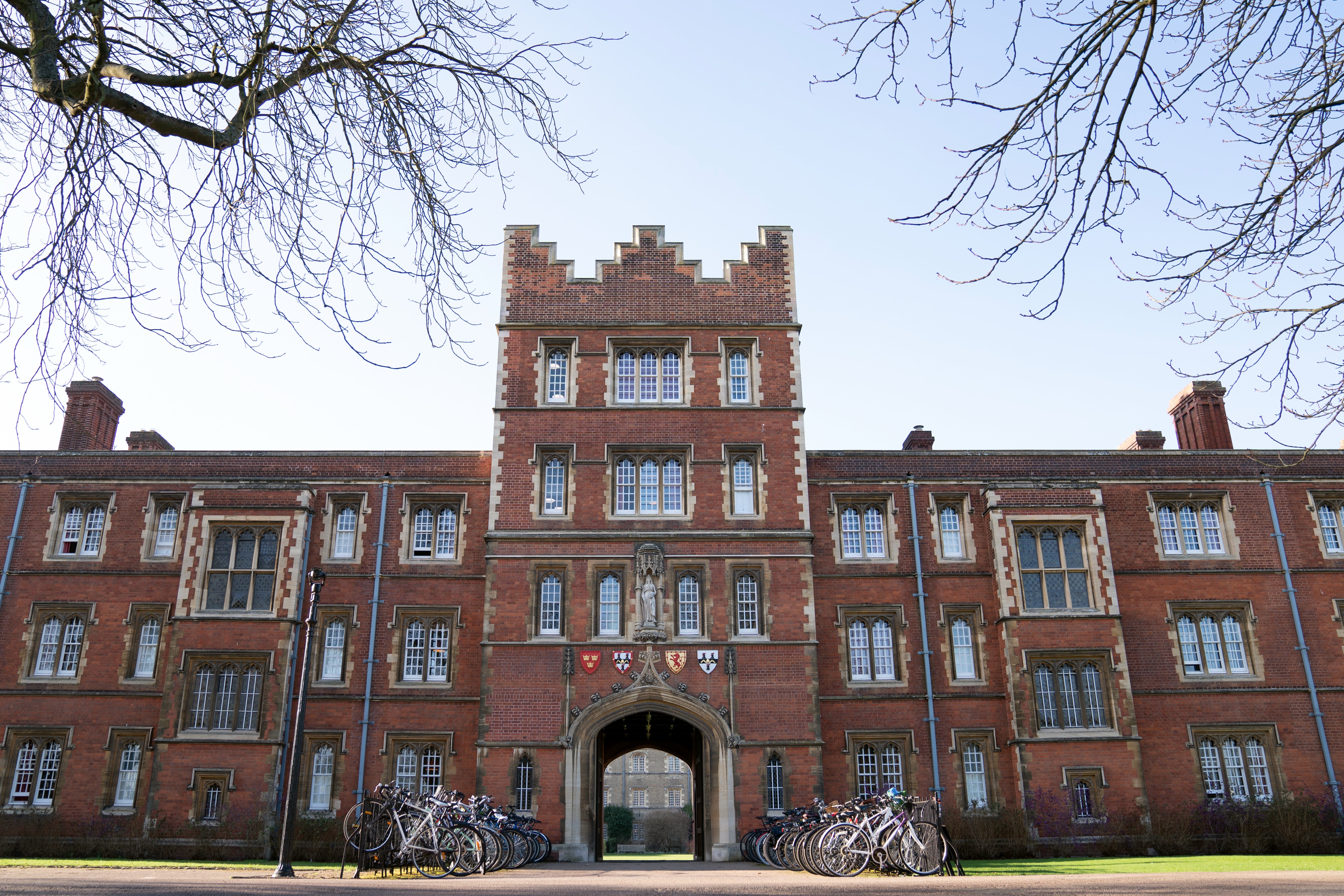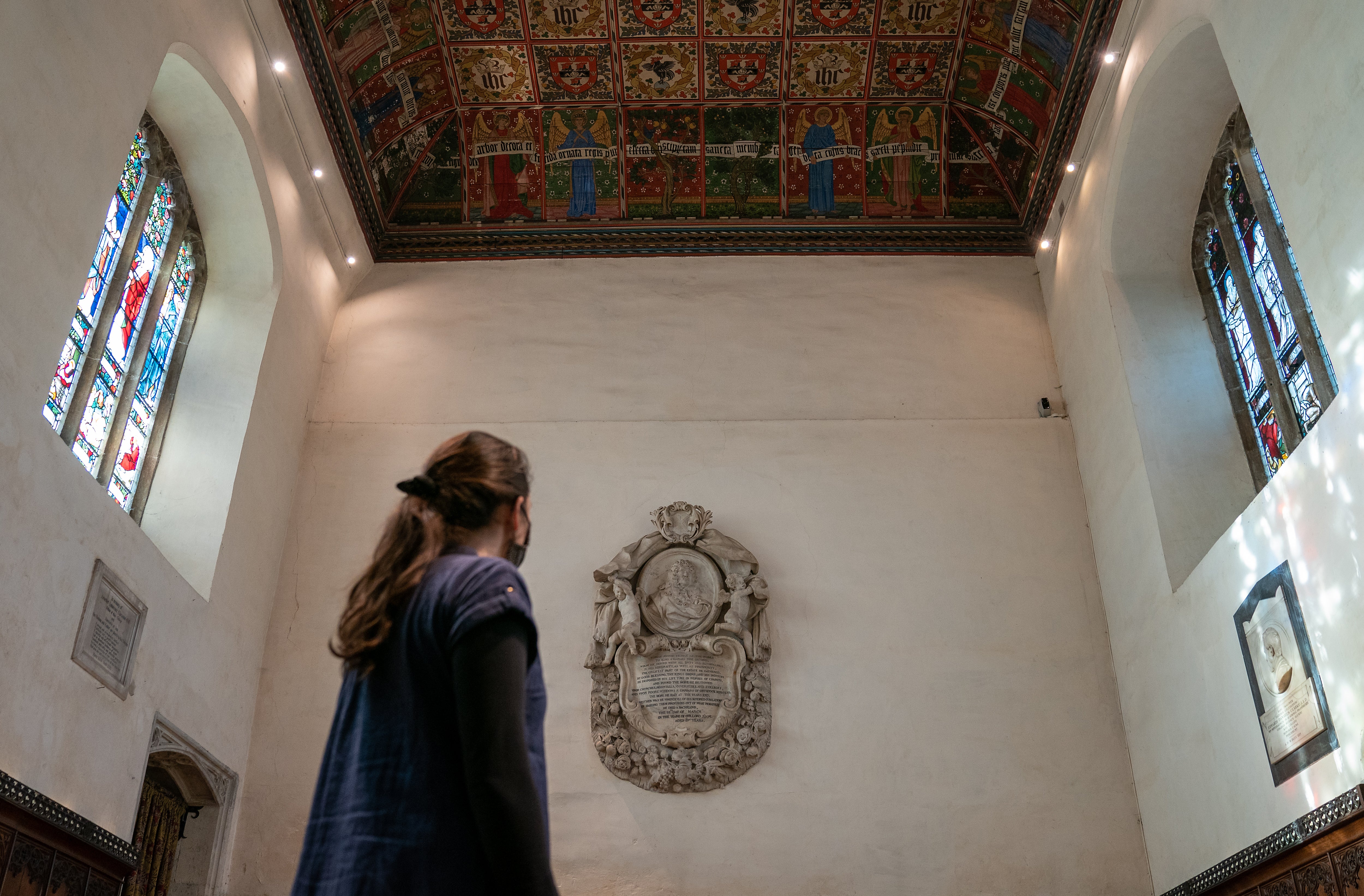
Students and members of a Cambridge college which was refused permission to remove a memorial to a slave trade investor say they feel “let down” by the Church.
In March, the Diocese of Ely decided that a memorial to Tobias Rustat, a seventeenth century investor in the trade, would not be removed from the Chapel of Jesus College, Cambridge, after an application from the college to move it to a permanent exhibition space elsewhere.
Archbishop of Canterbury Justin Welby said he supported the removal, asking: “Why is it so much agony to remove a memorial to slavery?”
We will take our time and consider what to do next. The presence of the memorial in our Chapel continues to be a serious issue for our increasingly diverse community
A consistory (Church) court case decided that the attempt to remove the plaque was based on a “false narrative”.
On Tuesday Jesus College announced that it would not be appealing the decision but added that the current processes in the Church of England for addressing issues of racial injustice are in urgent need of reform.
Sonita Alleyne OBE, Master of Jesus College, said: “Many students and members of the college community put their trust in the Church process, and understandably feel let down by the judgment and its misrepresentation of their views.
“The Consistory Court’s decision shows a lack of understanding of the lived experience of people of colour in modern Britain.”
The college said that Rustat had enabled the slave trade through investing in two important slave trading companies over a period of 30 years, as well as lending funds and taking on roles in the management of the companies.

The court case emphasised that Rustat did not benefit financially from his investments. Deputy Chancellor David Hodge QC of the Diocese of Ely, who decided the case, said that Rustat’s investments in the Company of Royal Adventurers Trading into Africa brought him “no financial returns at all”.
He said that the case for taking down the plaque was the product of a “false narrative” that “Rustat had amassed much of his wealth from the slave trade, and that it was moneys from this source that he used to benefit the college”.
But Jesus College said that this is “irrelevant” and that what mattered was Rustat’s active involvement in the trade.
Ms Alleyne said: “In short, the college is up against a Church ruling which believes involvement in the slave trade over 30 years isn’t sufficient to warrant the removal of this celebratory memorial.”
She said that the facts of Rustat’s involvement in the slave trade were “very clearly proven by the excellent and meticulous research undertaken by the Legacy of Slavery Working Party chaired by Dr Véronique Mottier”.
She said the findings of the working party had been “misrepresented” in court and that the college stood by the work of its academics.
Ms Alleyne said that after “much thought” and having taken advice, the college would not appeal the “disappointing judgment” as while the college believed the outcome to be “fundamentally wrong”, the time and costs involved in appealing would be significant.
“We will take our time and consider what to do next. The presence of the memorial in our Chapel continues to be a serious issue for our increasingly diverse community. We strongly believe that our stance will place us on the right side of history.”

Last week 160 clergy, including a former Archbishop of Canterbury and two bishops, signed a letter to the Church Times expressing their opposition to the decision preventing the college from moving the memorial to an alternative space.
Ms Alleyne said: “Last spring, the Church committed to taking action. This judgment demonstrates the inadequacies of the Church process for addressing issues of racial injustice and contested memorialisation. It is not fit for purpose.
“There is a much overdue debate happening within the Church about how best to face up to the legacy of racial injustice. We will continue to keep up the pressure, because this matters to our students.”
The Reverend James Crockford, Dean of Chapel at Jesus College, said: “This was a test case for the Church.”
“While the college considers its next steps, it is clear that, if the Church of England wishes to take diversity and inclusion seriously, it cannot ignore the implications of this decision for the wider mission of the Church to be a place where all are welcome.”
The Archbishop of Canterbury said: “Memorials to slave-traders do not belong in places of worship.
“Jesus College wished to move the memorial to a place where it could be studied as an important historical memorial, without disrupting worship.
“I have no doubt that the law was followed in this instance, and that the Church of England’s contested heritage guidance was used.
“But if we are content with a situation where people of colour are excluded from places of worship because of the pain caused by such memorials, then clearly we have a lot further to go in our journey towards racial justice.”







